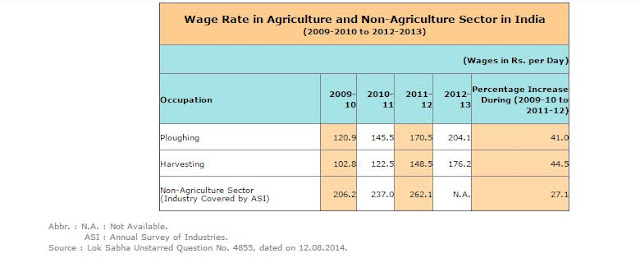Worried about ordinance : The Farmers (Empowerment and Protection) Agreement on Price Assurance and Farm Services Ordinance, 2020
In this session, I am trying to analyze the ordinal: The Farmers (Empowerment and Protection) Agreement on Price Assurance and Farm Services Ordinance, 2020 passed by Lok Sabha on 17th September and passed by Rajyasabh on 20th September. What are the key issues related to this ordinal? Let's discuss this.
1) The definition of Farmers discussed in the ordinal: Ordinal defines farmer as
An agricultural household for this survey was defined as a household receiving some value of produce more than Rs.3000/- from agricultural activities (e.g., cultivation of field crops, horticultural crops, fodder crops, plantation, animal husbandry, poultry, fishery, piggery, bee-keeping, vermiculture, sericulture etc.) and having at least one member selfemployed in agriculture either in the principal status or in subsidiary status during last 365 days.
In 59th round definition was:
‘Situation Assessment Survey of Farmers’, conducted in NSS 59th Round, defined ‘farmer’ as a person who operates some land (owned or taken on lease or otherwise possessed) and is engaged in agricultural activities in broad sense of the term e.g. cultivation of field crops, horticultural crops, plantation, animal husbandry, poultry, fishery, piggery, bee-keeping, vermiculture, sericulture, etc., on that land during last 365 days preceding the date of survey. If any member of a household was a farmer, the household was treated as a farmer household for the purpose of the survey.
The important point highlighted in 70th round is that land possession should not be a criteria to define the farmer.
But the way ordinal is defining the "farmer" is again highlighting the importance of the land possession. "Farmer is a person engaged in production of farming produce (like food stuffs, cattle fodders, cotton seeds where land is required for production) by self or hired labour. This creates doubts regardling the role of agriculture labour (with land and without landless) in agriculture production post-agreement period. Agricultural agreement is defined as:
In this agreement sponsor, farmers or third party are mentioned. Will agriculture labour (with land and without landless) have a say in the overall process of agricultural development? What about the share of those who are engaged in agricultural activities but don't fall in the definition of farmers? It is expected that post-agreement farming will bring the capital-intensive methods. The agricultural labors will suffer a lot if there are no non-farming opportunities (Reserve migration due to pandemic has created more troubles).






.jpeg)


टिप्पण्या
टिप्पणी पोस्ट करा